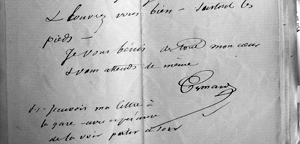Forgiveness cannot exist without justice, for forgiveness’ very concept derives from justice. So many of us are taught to just say “Sorry” without considering justice, almost like an automatic reaction. This lack of thought and consideration devalues the meaning of our words, for they are very often empty gestures. Therefore, is it really unfair when the people we have offended stay upset even after we apologize? Or is it more correct to say that they cannot find love, sincerity, and thoughtfulness in our apologies? If we have not taken the time to sincerely consider our faults and how justice demands an active response, how can we expect the aggrieved to forgive us sincerely and fully? On the other hand, what is our expectation when someone asks us for forgiveness? Do we apply the same standard?
Justice requires truth, the same as any of the other virtues. We cannot lie to ourselves and others and expect justice to be served. Sincerity and love are required. We must learn to forgive sincerely, but for that, we must learn to ask for forgiveness sincerely. Those that have been forgiven much, with love, sincerity, truthfulness, and compassion, know it can change lives completely. Christ died for us, so we are redeemed. The Eucharist shows us how much he cares. It is with that level of sincerity that we have to both ask for forgiveness and forgive. The sacrament of confession is there for us to present ourselves to Christ thoughtfully and ask for forgiveness and restoration. It is on us to approach the Throne of Mercy.
Whether we are asking for forgiveness or have been asked to forgive, let us consider this with humility, love, and sincerity so that our words may bring about healing. Our Lord sees all.
Prayer:
Lord, “Let your countenance shine upon your servant and teach me your statutes.” (Psalms 119:135). May we be able to follow your justice and mercy. It helps us to forgive and be forgiven. Amen.













